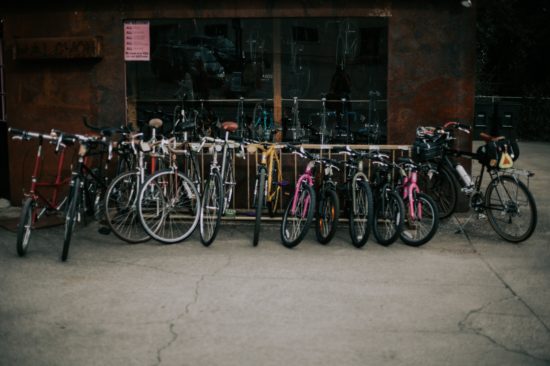Guide to buying a bike

When choosing a bike to buy, it’s important to make sure it suits your needs. Buying a downhill mountain bike to commute to work or going for a super lightweight road bike for off-road cycling is not going to end well.
Considering what you want to use the bike for, when you will use it and how often will assist you in finding the right type of bike for you and its specification.
Try asking yourself these questions from Cycling Scotland’s Essential Cycling Skills Quick Guide:
- What sort of journeys will you be making?
- How long are those journeys?
- What type of surfaces will you be riding on?
- Will you need to carry things?
- Will you be using other forms of transport as part of your journey?

Types of bikes
- For commuting, look at bikes that are rigid (without suspension), such as a hybrid or relaxed and comfortable like a city or Dutch bike. Consider a folding bike if you need to store it easily or take mixed modes of transport. These bikes offer you the best efficiency for regular commuting on tarmac.
- For road cycling, seek a road bike, which is lighter and built for speed and performance. Road bikes will have a range of gears for hilly routes.
- For off road cycling, look for a mountain bike (MTB). Strong, robust and with chunky tyres they are suitable for multiple terrains, including forest trails and single tracks.
- For children that can’t yet cycle, look at balance bikes. Balance bikes are usually aimed at children ages 2-5, but they can be used by older kids learning to cycle too. For children who can already cycle, look for a bike with an upright sitting position, a low standover height and low cranks. Gearing will be single-speed and the brakes should be easy to operate.
Choosing your budget
Setting yourself a rough budget (and don’t be afraid to repeat it to yourself so it sticks!) is useful to have in mind when purchasing a new or a used bike. It can be easy to get carried away with a bike purchase, but you shouldn’t need to re-mortgage your house to buy a bike. Good quality modern hybrids, recommended for cycling in the city, can be bought for about £400. Used bikes are around half of this price.
It’s also a good idea to include the cost of a few good quality, practical essentials in your budget, such as:
- A helmet – although use in the UK is not mandatory
- Gloves – preferably wind and waterproof to keep your hands warm and dry when it is dreich
- Lights – essential in the winter when the days are short or cycling at night
- A lock – read our guide to safety and security for more information about buying an appropriate lock
Read our guide to safety and security for more about what to wear to be safe and how to securely lock your bike. Avoid the cheapest essentials if you can, they are a false economy as you may need to buy multiples if they break due to poor quality.
Refurbished bikes
Operating as charities, many of Glasgow’s cycling organisations sell refurbished bikes, built from bike donations. Built by qualified bike mechanics they will be condition checked before leaving the workshop for the shop floor.
Some cycling organisations are accredited by Revolve, Scotland’s national accreditation for organisations that sell quality refurbished and reconditioned goods. Look for the Revolve logo.

The price of a refurbished adult bike typically starts at £80, with children’s bikes starting at £30. This is a great option if you are getting back into cycling and want to see how it goes, are a student looking for something low cost but good quality, or have a limited budget. Refurbished bikes are also great for kids as you can donate them back to the charity once your child has grown out of it.
By buying a refurbished bike you are preventing landfill and supporting a charity who is reinvesting profits into supporting more people to get cycling. It’s a win-win scenario!
Electric bikes
eBikes are a great way to break down some of the barriers to cycling. They are very versatile and come in all shapes and sizes. eBikes can help you cycle further and faster for longer – and e-cargo bikes can help you transport children or goods!
Testing before you buy
It is important to test a bike before you buy to get a feel for how it rides, fits and suits your needs and circumstances. Most shops will allow you to test a bike in the local area. It is best to call in advance to ask if you need to take anything with you to take the bike out of the shop for a test ride.
There is the option to hire a bike, whether for a day, a week or longer, to get a feel for it.
